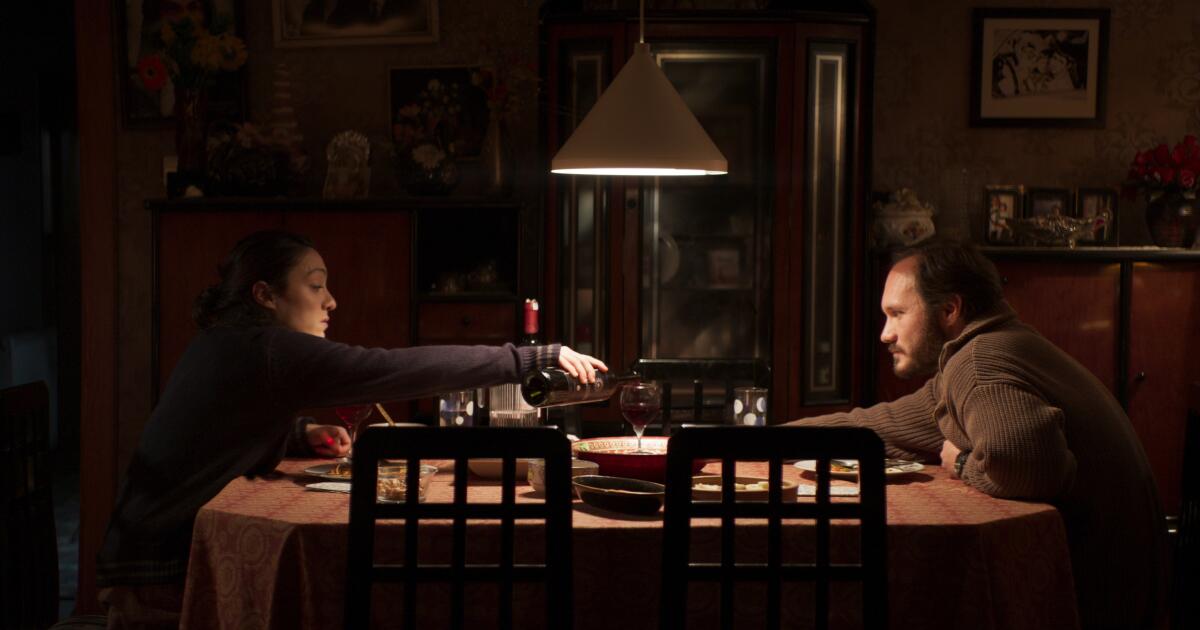All we had to do was write a better movie than the one that just won an Oscar.
How do you follow a film that's best known for its wild originality?
At least we had the first line of the script.
Let's do things differently this time.
And… that's all we had.
For “Spider-Man: Across the Spider-Verse”“ Despite the pressure to follow the formula that worked before, we knew that if we did a repeat of the same themes, dynamics, ideas and visuals as its predecessor, it would be a disappointment. This would have to be a completely different type of movie. Cinematic in ways we couldn't yet imagine. The most complex and sophisticated drama, the most mature characters.
And when you're the guys who made “The Lego Movie” and the “Jump Street” movies, “maturity” isn't the first word that comes to mind. Thank goodness for our writing partner Dave Callaham, who has facial hair and tattoos. He is super mature.
The first “Spider-Verse” The film began with a question: What does it take for a young person to thrive? The film had innovative images, but won over audiences thanks to the strength of Miles Morales, an Afro-Puerto Rican teenager, and his warm, affirming relationship with his parents. We wanted the new movie to start with a new question: After giving that child all the love you know how to give him, what do you do when he wants to leave home?
We had a friend who kept her apartment scandalously messy. One day, her horrified mother came to visit, she pointed to a photograph of our friend when she was a child and said, “This girl deserves to live in a clean room.”
That was the inspiration for a speech that Rio Morales gives to his son and that became the backbone of the film.
For years I've been raising this child… Wherever you go, you have to promise to take care of that child for me… and don't let anyone in those big, fancy places you're going to tell you that you don't belong there.
Gwen Stacy (Hailee Steinfeld) is a key part of “Spider-Man: Across the Spider-Verse” along with Miles Morales (Shameik Moore).
(Sony Image Animation)
An animated movie is written by many people. Directors, story artists, actors, editors, designers, lighting artists, and animators are ultimately storytellers. The conversation in every production room was not about the magnificent euphoria of cinematic expression, but about the foundation of that expression in story and character. How does Gwen feel here? Could the world look the way she feels?
This is how a story that travels through infinite aesthetic dimensions becomes a film about building bridges between the infinite intimate spaces between people who love each other.
We were very worried that the audience wouldn't have patience with all these quiet scenes of people talking about their feelings and demanding that we get back to people chasing each other. But every time we showed them the film, they surprised us. The little things are what excited them the most.
We threw as many obstructions at each other as we could. What if the entire first reel focused on Gwen? What if the film wasn't structured as a hero's journey, but as a tragedy? What if instead of finding his place in the world, Miles gets lost all the time? What masochistic fools we were!
Sometimes you can be your worst enemy.
But this time we were incredible enemies. Because we were forced to make moves we would have never attempted otherwise. We made room for father-son character scenes, found unlikely allies for Miles like Daniel Kaluuya's Spider-Punk, and exposed the redundancy of the term “naan bread.” Meanwhile, Miles' character grew stronger and stronger, until instead of accepting the way everyone tells him this is supposed to be his story, he declares:
No, I'm going to do my thing.
When he finally returns home, he tells his mother how he has grown:
I know how strong I am now.
The child who felt pressured to follow what came before, like us, found strength in doing the opposite.
The last line we wrote was the last line of the movie:
I always wanted to be in a band.
I never found the right one
So I started my own.
A writer's job is not to follow the canon. That can get you killed. Our job is to do something new.












